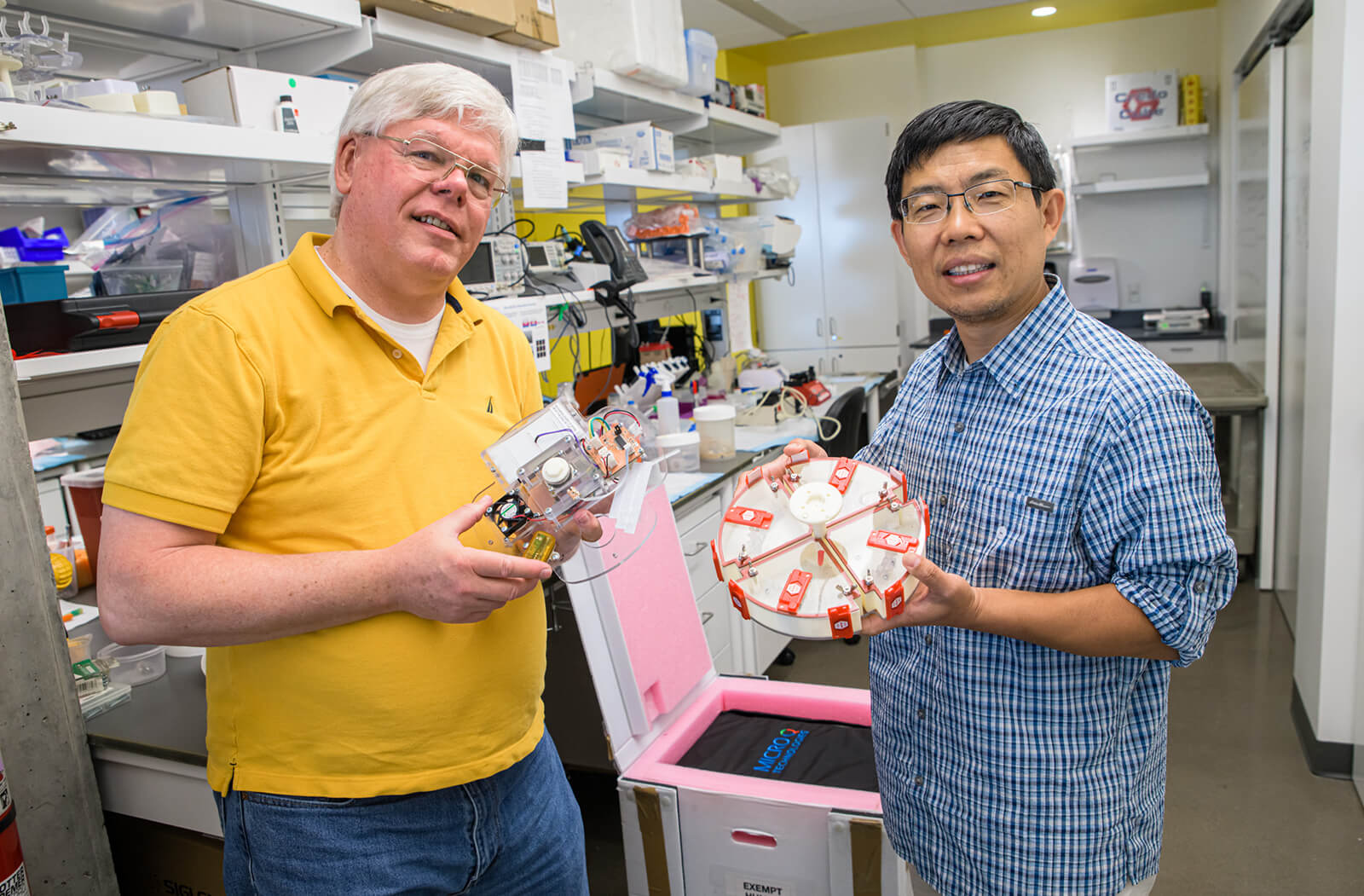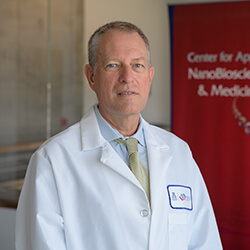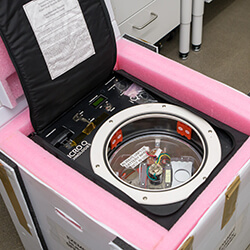
New Technology Could Dramatically Improve Response Time for Biospecimen Samples’ Processing

Time and safety are essential when transporting human blood samples to laboratories for specialized analysis.
A new paper, “Automatic reagent handling and assay processing of human biospecimens inside a transportation container for a medical disaster response against radiation” — co-authored by Adam Akkad, Brett Duane, Jian Gu, PhD, Alan Norquist, and Frederic Zenhausern, PhD, MBA, of the University of Arizona College of Medicine – Phoenix’s Center for Applied NanoBioscience and Medicine (ANBM) — was published in Plos One.

Dr. Zenhausern, the director of ANBM and interim co-chair of the Department of Basic Medical Sciences, noted that the successful development of the technology could prove significant. “With the challenges in supply chain, as well as in the landscape of health care logistics related to decentralized care, global pandemics and vaccine delivery, alternative shipping technologies are highly desirable,” he said.
Dr. Gu, lead researcher at ANBM and associate professor in the Department of Basic Medical Sciences, commented that “The U.S. government is also learning from the pandemic and understands the need to be prepared should a similar or more severe outbreak occur, such as accidental radiation exposure. Our technology is directly applicable to biodosimetry testing and fits the strategic medical countermeasures.”
To date, active reagent handling during transportation from a collection site to a laboratory or biorepository has not been achieved. And the inability to test samples while in transit can lead to costly delays or even inaccurate results.
With no existing FDA-approved biodosimetry method capable of meeting the needs of a nuclear triage, the practicality is evident. And their shipping container — the Smart Shipping Incubator or SSI — has promisingly shown through testing that it can produce the culture of CBMN samples immediately after collection and during transportation, shortening the assay response time from six days to three.
“During a radiological emergency, individuals will develop the acute radiation syndrome (ARS) with a latent phase of 2-20 days based on their exposure level. Early medical interventions (first several days after exposure) have shown to improve the survival rate significantly,” said Dr. Gu.

In their testing — a ground shipment from the college’s campus to HonorHealth Research Institute (roughly 24 miles) — the ANBM team documented that none of their shock indicators were triggered, and the volumes of the reagent were not changed. This signaled that the valve functioned as expected, preventing any premature release from occurring.
Given improvements to the design — cost effectiveness, more economical size — they expect the concept of actively processing samples during transportation to be an attractive one. It would expedite the analyses of high-quality samples or safe distribution of clinical products, such as vaccines, with potential economic benefit — such as reduction in cold chain requirements — and provide for a more equitable access and rapid response should a large-scale health care crisis occur.
“The shortened time of biodosimetry will help the medical personnel to make an informed decision on medical intervention to utilize limited resources on the most needed cohort of patients in a timely manner,” said Dr. Gu.
This work is sponsored by the National Institute of Allergy and Infectious Diseases (NIAID) and the Department of Defense (DoD).
About the College
Founded in 2007, the University of Arizona College of Medicine – Phoenix inspires and trains exemplary physicians, scientists and leaders to advance its core missions in education, research, clinical care and service to communities across Arizona. The college’s strength lies in our collaborations and partnerships with clinical affiliates, community organizations and industry sponsors. With our primary affiliate, Banner Health, we are recognized as the premier academic medical center in Phoenix. As an anchor institution of the Phoenix Bioscience Core, the college is home to signature research programs in neurosciences, cardiopulmonary diseases, immunology, informatics and metabolism. These focus areas uniquely position us to drive biomedical research and bolster economic development in the region.
As an urban institution with strong roots in rural and tribal health, the college has graduated more than 1,000 physicians and matriculates 130 students each year. Greater than 60% of matriculating students are from Arizona and many continue training at our GME sponsored residency programs, ultimately pursuing local academic and community-based opportunities. While our traditional four-year program continues to thrive, we will launch our recently approved accelerated three-year medical student curriculum with exclusive focus on primary care. This program is designed to further enhance workforce retention needs across Arizona.
The college has embarked on our strategic plan for 2025 to 2030. Learn more.